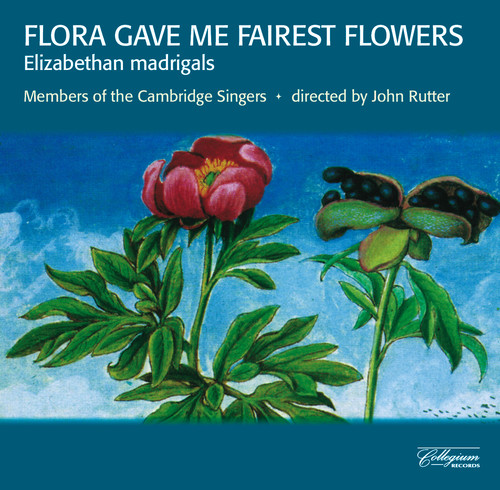The sixteenth-century madrigal was an Italian form. The term 'madrigal' was loosely applied to a wide variety of music, but generally denoted a polyphonic setting for four or more voices of an amorous or pastoral text which was closely depicted in the music. Thomas Morely transplanted the form into England in the 1590s; this marked the beginning of the brief but brilliant flowering of the English madrigal. Between the 1590s and the early 1620s, twenty composers published a total of 36 books of madrigals, after which the form virtually disappeared. Some of these composers, such as Morely and Weelkes, followed the Italian model closely; others, such as Byrd and Gibbons, mostly stayed with the simpler English form of the consort song, where the tune remains in one voice, word-painting is not used, and strophic form is preferred to the continuous structure of the madrigal proper. Among the twenty-one items selected for this recording there are examples of several types of piece, ranging from true Italianate madrigals such as Too much I once lamented, via more popular 'balletts' such as Fyer, fyer!, to the simple part-songs like A little pretty bonny lass. The variety, imagination, and inspired blending of poetry and music characteristic of the best of the 'English Madrigal School' afford a particular kind of delight in performance, shared equally by singer and listener. |



